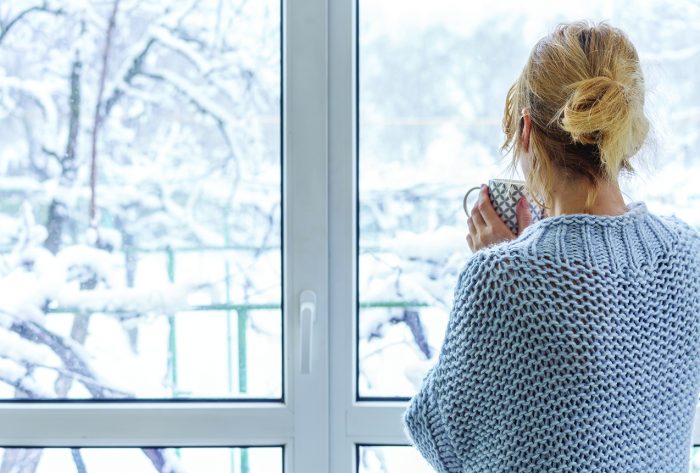Check in with each other, yourself before approaching holidays, local doctors urge

An important gift people can give each other this holiday season is a check-in call or visit.
That’s the advice of area mental health professionals, who say that the holidays in general can be stressful and that several factors, including grieving over the loss of family or friends, fear about ongoing health concerns, and uncertainty and overall anxiety, have created stressors to mental health.
“If you know someone is having a rough time, who will be without a loved one for the holidays, you can call and say, ‘I’m here,’” said Dr. Stacy Eagle, director of Psychiatry at Port Jefferson-based St. Charles Hospital. “Doing something that simple can be really helpful.”
Indeed, area mental health professionals said the health care system in general has been straining to meet the need for patients in a host of ages to provide timely services.
Signs
Dr. Adam Gonzalez, a licensed clinical psychologist, director of Behavioral Health at Stony Brook Medicine and founding director of the Stony Brook University Mind-Body Clinical Research Center at the Renaissance School of Medicine, suggested that people can look for signs among their friends, family members and coworkers.
“Be aware of behavioral and emotional changes like social withdrawal, increased alcohol or drug use, overeating/eating more unhealthy food, difficulty sleeping, difficulty concentrating or making decisions, difficulty with getting work done” irritability and sadness, Gonzalez explained in an email.
Broadly speaking, Eagle added that people should be aware of any change in normal functioning. An extrovert who is acting withdrawn can provide a clue about a daily struggle.
Solutions
When people notice these kinds of changes in themselves or others, doctors urged a host of responses, depending on the severity of the symptom.
People who are an imminent danger to themselves or to others can call 988, which is a suicide and crisis hotline phone number. They can also call 911 or go to an emergency room, where a psychiatrist can evaluate them and offer help.
Cari Faith Besserman, director in the Division of Community Mental Hygiene Services with the Suffolk County Department of Health, said residents can take classes such as Mental Health First Aid, which teaches laypeople to increase their awareness by recognizing signs of emotional and mental distress, how to respond safely, and educates on symptoms of illness to decrease the stigma and mystery of mental health and various stages of wellness.
Suffolk County residents also can turn to the Diagnostic Assessment and Stabilization Hub, also known as DASH, program, which provides 24/7 access to behavioral health professionals and provides somewhere to go for those experiencing a crisis. The DASH number is 631-952-3333.
For less severe but problematic or ongoing symptoms, doctors urged some restorative measures.
Eagle suggested getting proper rest, ensuring a sufficient and balanced diet and staying hydrated. Activities such as exercise, which helps increase the release of serotonin, can help reduce anxiety and improve mood.
She added that unplugging from social media, especially for adolescents and children, can improve overall mental health.
Gonzalez also urged those who are offering support to remain fully present and nonjudgmental, and listen actively when someone shares concerns or anxieties.
“Be sure to ask what they need from you,” Gonzalez urged. “For some, it may be just listening; for others, it may be advice/ feedback or helping to connect them to professional support services. It’s easy for many to slip into problem-solving mode; however, sometimes others just want to be heard and validated.”
Gonzalez added that group-based treatments are just as effective as individual therapy and encouraged patients to try skills-based groups to learn coping methods for managing stress, anxiety and depression symptoms.
Stony Brook offers a COVID-19 support group for people who have or have had COVID, especially those with long COVID symptoms. Stony Brook also offers a comprehensive mind-body treatment program called the Stress Management and Resilience Training program.
The SMART program is helpful for people who are managing co-occurring mental and physical health problems and for those who would like to enhance their overall resilience.
Overwhelming demand
On the whole, hospitals and mental health facilities are struggling to keep up with the need for help.
“Currently, the demand for psychotherapy services is overwhelming,” Gonzalez explained in an email.
Eagle added that the weeks leading up to the holidays have often been a stressful period.
This year, some groups in particular are struggling. Parents of children born in 2022 are especially concerned about respiratory syncytial virus, which is “higher than normal,” Eagle said.
Seasonal affective disorder, which occurs during the darker, colder winter months, also affects about 0.5 to 3% of the population, Eagle said.
SAD can be harder for people if they have depression or anxiety, Eagle said. “These things are definitely an issue.”
Doctors added that those who are grieving over a loss can find the holidays difficult.
“Grief can be more of an issue” around the holidays, Eagle said.
Eagle urges the continuation of traditions that families found meaningful and helpful.
Gonzalez added that people can cope with grief by keeping a picture of a person who is no longer present close by, offering a prayer in their honor, sharing positive memories, or writing them a note.
Grieving families can also consider starting new traditions that may help them move forward with their lives, Eagle suggested.
Good news
Even amid all the concerns this year, doctors said people can appreciate some good news.
“Happily, we are out of the severe hospitalizations for COVID,” Eagle said.
Communities can also celebrate resilience “as individuals and as a country,” she added.
In hospitals, visitors are able to offer comfort and spend quality time with their friends and family, which is a considerable improvement from the days when patients couldn’t have visitors.
Eagle said she is following her own advice with her friends and family.
She will try to reach out to those she knows have had a particularly bad time this year to “make sure that they are aware that someone is thinking about them,” she said.






